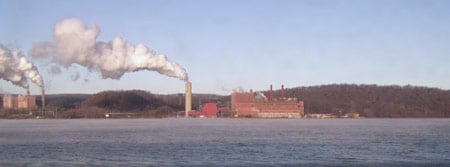Tell the EPA: Take a Stand Against Industry Pressure and Save Millions of Hudson River Fish Each Year

View more images on our Flickr site
Up and down the shores of the Hudson River, power plants continue to use outdated technology known as once-through cooling and withdraw nearly five billion gallons of the river’s water each day to produce electricity. That’s more than quadruple the volume of water consumed by nine million people in New York City and parts of Westchester. While generating record profits, they are extracting an even larger cost on our river’s aquatic life and hope for a sustainable future. This enormous water use needlessly kills billions of fish, eggs and larvae each year, an impact that could be almost entirely eliminated through the use of closed-cycle cooling systems. Tragically, the same thing is happening on waterways across the country.
The Environmental Protection Agency recently proposed a regulation that was supposed to address the power plant fish kill problem, and which has been delayed for decades by fierce industry resistance. But EPA’s proposed rule fails to require plants to install closed-cycle cooling, a widely used and proven technology that has been available for decades and can reduce the number of fish killed by 95% or more.
Please urge EPA to adopt a strong standard for modernizing power plant cooling systems in its final rule by requiring closed-cycle cooling. Our communities are long overdue for a clear, consistent national policy that protects our waterways and helps to move the nation towards a future with cleaner, less destructive energy production.

